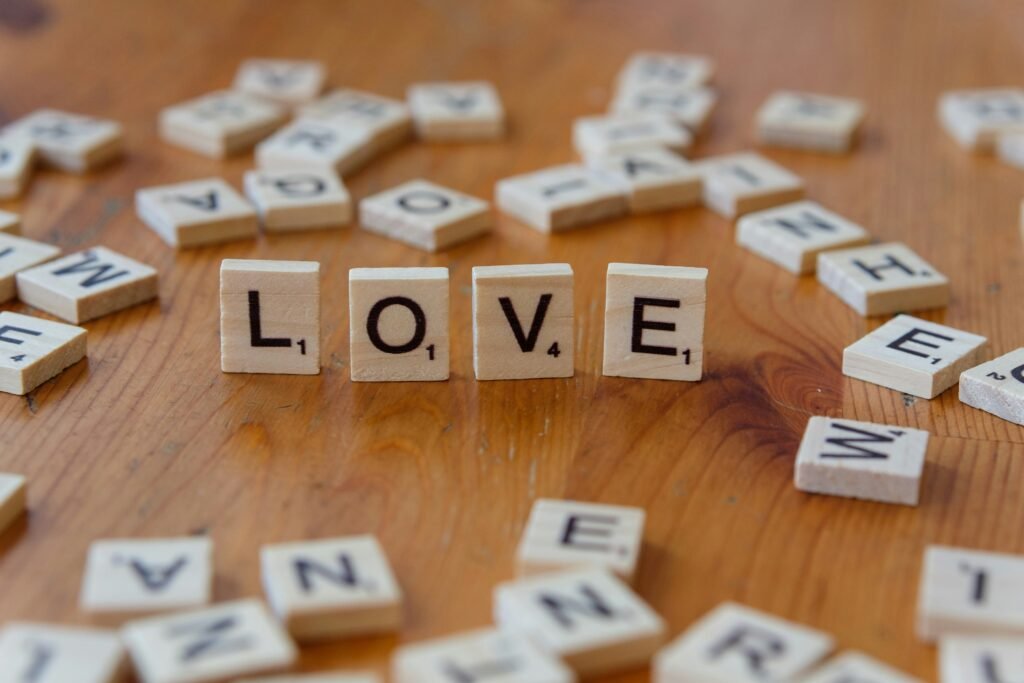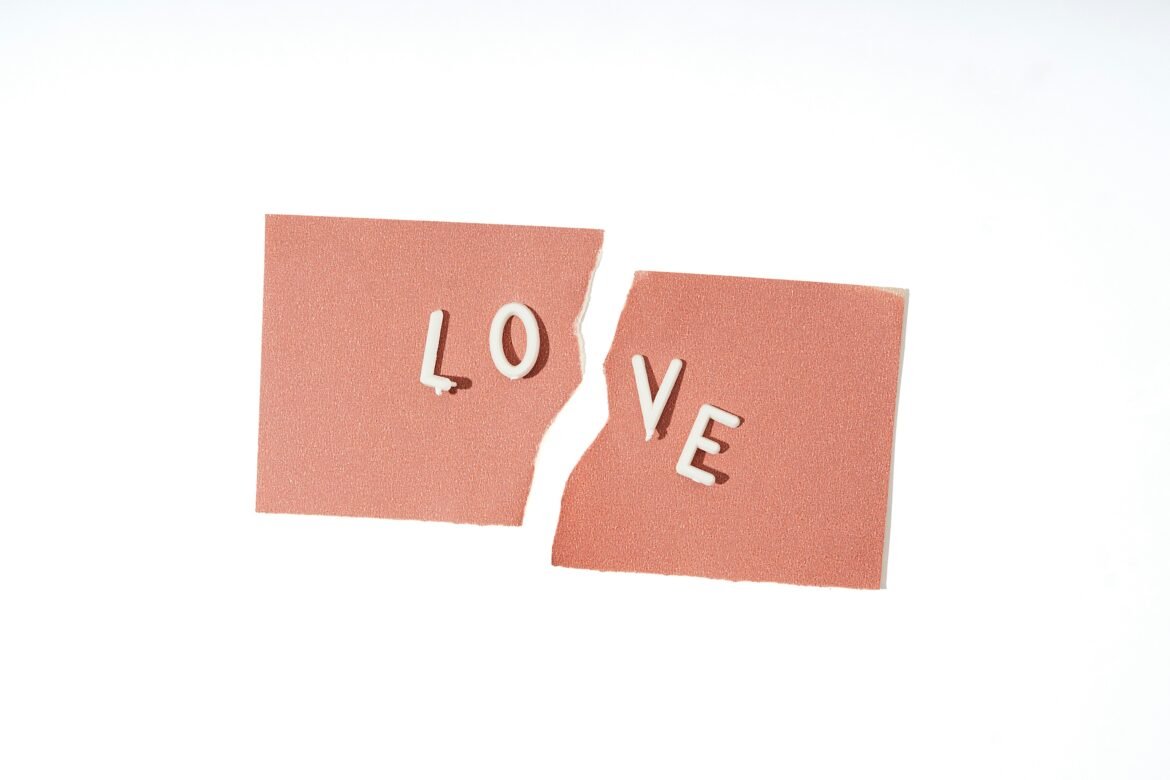When Love Is Complicated, Read These
Love Isn’t Simple—And That’s Okay
Love is beautiful, exciting, and life-changing—but let’s be honest, it can also be messy, confusing, and downright exhausting. Sometimes it feels like you’re doing everything right, and yet somehow the connection slips through your fingers. Other times you look at your partner and wonder how two people who love each other so much can feel so far apart.
I’ve always thought love is a bit like cooking. You can have the freshest ingredients, follow the recipe step by step, and still, for no clear reason, the dish just doesn’t turn out. It doesn’t mean you’re a bad cook—it just means love, like food, has a life of its own.
Nobody really teaches us how to navigate the complicated side of relationships. Sure, we grow up hearing about “happily ever after,” but not about the arguments over bills, the silent treatments, or the constant balancing act of two lives blending together. Love isn’t just big gestures—it’s in the tiny, daily things: remembering how your partner takes their coffee, showing up when they’re stressed, forgiving each other’s slip-ups.
And when things get complicated (because they will), the question isn’t “Did I fail?” but “What can I learn from this? How can we grow through it?” That shift in perspective has helped me so many times, and often, the right words—books, quotes, or stories—have been the reminder I needed.

When Relationships Get Hard
Let’s be real: relationships aren’t always fireworks and fairy tales. Sometimes they’re long nights of miscommunication, weeks of disconnection, or just the everyday grind that wears you down. And when you’re in that place, you want something practical—not fluffy advice that makes you roll your eyes.
That’s where good relationship books and resources come in. The best ones don’t sugarcoat love or pretend it’s easy. They give you tools—real, usable tools—for talking, listening, and reconnecting. Many are written by therapists who’ve seen it all: trust issues, endless fights, or just the slow drift that happens in long-term love.
These resources remind you that being stuck doesn’t mean you’re broken—it just means you need a new recipe, a different approach. Sometimes that’s enough to turn things around.
The Book That Saved My Marriage
I’ll never forget one rainy Tuesday. My husband and I were in the middle of yet another fight—about something so trivial I don’t even remember what started it. I ended up sitting on the kitchen floor, tears streaming, clutching a book a friend had recommended: The Seven Principles for Making Marriage Work by John Gottman.
We were eight years into marriage, and somehow, it felt like we were speaking completely different languages. I’d try to explain how I felt, and he’d look at me like I was speaking in code. The book felt like my last lifeline, so I convinced him to try reading it together.
Every night, after putting our daughter to bed, we’d sit with decaf coffee and read a chapter. Slowly, something started shifting. We learned about “love maps” (basically knowing your partner’s world), emotional bids, and the dreaded “Four Horsemen” that destroy relationships: criticism, contempt, defensiveness, and stonewalling. We saw ourselves in those pages—sometimes uncomfortably so. But instead of shutting down, we started to talk, really talk.
It didn’t change us overnight, but over weeks and months, it softened the walls we had built. We started understanding each other again. And years later, when friends ask how we “made it through,” I often smile and say: “When love gets complicated, read these.” Because sometimes a book isn’t just paper and ink—it’s a roadmap back to each other.
Why These Books Are Different
Let’s face it, a lot of relationship advice feels either way too simple (“just communicate!”) or so heavy with psychology jargon you can’t get through two pages. The books I always recommend strike a balance—they’re grounded in research but easy to actually apply.
They don’t promise magic fixes. They acknowledge that people are complex, and therefore love is complex. But they also remind us that complexity isn’t failure—it’s just part of the journey.
What I love most is that these resources meet you wherever you are: dating, newly married, decades in, straight, LGBTQ+, long-distance—it doesn’t matter. The principles are universal, but flexible enough to adapt to your reality.
What Helps Relationships Grow
Here’s what I’ve found you really need if you’re trying to work through complicated love:
- An open mind (it’s not just your partner’s fault—it’s about both of you)
- Dedicated time (even 15 minutes with no distractions can make a difference)
- A journal or notes to track patterns you notice
- Courage for uncomfortable conversations
- Patience—for yourself and your partner
- Sometimes, a therapist to guide you
- A commitment to keep practicing, even when it feels awkward
Love isn’t a one-time decision; it’s something you recommit to every day. And that requires effort, even in the best of relationships.
How to Actually Apply the Wisdom
The biggest mistake couples make when reading relationship books is treating them like a quick fix. It’s not about flipping through pages hoping for a miracle—it’s about actually doing the work.
Here’s what worked for us:
- Read together. Even just a few pages a night. Then talk about what resonated.
- Make it a ritual. Coffee on Sunday mornings, a walk in the evening—create space for these conversations.
- Take notes. Highlight sentences that hit you hard. Sometimes those words will come back exactly when you need them.
- Practice when it’s calm. Don’t wait until you’re fighting to try a new communication technique. Test it when things are light.
Think of it like learning a new skill—you wouldn’t try out your first piano song at a concert. You practice in private, so you’re ready when the big moments come.
Tips That Make the Difference
- Start small. One book, one concept, one change at a time.
- Expect setbacks. Growth isn’t a straight line—it’s more like a dance, two steps forward, one step back.
- Be honest with yourself. Sometimes the hardest part is realizing where you need to change.
And don’t underestimate the little wins. Sometimes it’s not about solving everything at once—it’s about learning to really listen, choosing kindness in a heated moment, or laughing together when things feel heavy. Those tiny shifts add up.
If Books Aren’t Your Thing
Not a reader? No problem. Many of the best relationship experts have podcasts, online talks, or even short YouTube videos. Esther Perel, for example, shares real-life stories and insights that feel like sitting in on a private therapy session. The format doesn’t matter—what matters is that you’re open to learning and trying.
Building a Healthier Version of Love
One of the biggest lessons I’ve learned is that “healthy love” isn’t about avoiding problems—it’s about how you handle them. Do you listen? Do you show respect, even when you’re upset? Do you keep choosing each other, even when it’s hard?
If anxiety, past trauma, or other personal struggles affect your relationship, it’s worth finding books or resources that speak directly to that. You can’t separate individual wellbeing from relationship health—they go hand in hand.
Closing: Love Is Worth the Work
Here’s the truth: love is complicated because humans are complicated. And that’s not a flaw—it’s what makes love so deep and worth fighting for. When you hit rough patches, it doesn’t mean you’ve failed. It just means it’s time to learn, adjust, and maybe grab a little wisdom from people who’ve walked the road before you.
So if you’re standing in your own “kitchen of emotions,” wondering what went wrong, remember this: even the best chefs use cookbooks. And in love, there’s no shame in reaching for guidance.
When love feels messy, confusing, or exhausting, sometimes the right book—or even just the right sentence—can remind you why you started in the first place.

7 Books & Resources for When Love Feels Complicated
- The Seven Principles for Making Marriage Work – John Gottman
- Mating in Captivity: Unlocking Erotic Intelligence – Esther Perel
- All About Love: New Visions – bell hooks
- Attached: The New Science of Adult Attachment – Amir Levine & Rachel Heller
- Hold Me Tight: Seven Conversations for a Lifetime of Love – Dr. Sue Johnson
- Where Should We Begin? Podcast – Esther Perel
- The 5 Love Languages – Gary Chapman
Frequently Asked Questions For Relationship Books
1. What’s the best book for communication problems in relationships?
“Nonviolent Communication” by Marshall Rosenberg is exceptional for couples struggling with communication patterns that create distance rather than connection.
2. Are there good books for couples who are constantly arguing?
“The High-Conflict Couple” by Alan Fruzzetti specifically addresses how to break cycles of intense conflict and emotional reactivity.
3. What should I read if trust has been broken in my relationship?
“After the Affair” by Janis Spring offers compassionate guidance for both the hurt partner and the partner who breached trust.
4. Are there relationship books specifically for LGBTQ+ couples?
Yes! “Lesbian Couples: A Guide to Creating Healthy Relationships” by D. Merilee Clunis and “The Velvet Rage” by Alan Downs for gay men are excellent starting points.
5. What if my partner refuses to read relationship books with me?
“Change Your Relationship by Changing Yourself” by Elliott Connie focuses on how one motivated partner can shift relationship dynamics positively.
6. Are there good resources for navigating cultural differences in relationships?
“Mixed Matches” by Joel Crohn addresses intercultural and interfaith relationships with sensitivity and practical advice.
7. What’s a good resource for couples with very different communication styles?
“The 5 Love Languages” by Gary Chapman helps partners understand and accommodate different ways of expressing and receiving love.
8. Are there books that focus on maintaining passion in long-term relationships?
“Mating in Captivity” by Esther Perel specifically addresses maintaining desire and eroticism within committed relationships.
9. What should couples read before getting married?
“The Seven Principles for Making Marriage Work” by John Gottman offers evidence-based foundations for lasting relationships.
10. Are there books for couples going through major life transitions?
“Transitions” by William Bridges helps couples navigate major changes like parenthood, career shifts, or empty-nesting.
11. What resources help with setting healthy boundaries in relationships?
“Boundaries” by Henry Cloud and John Townsend offers clear guidelines for establishing healthy limits while maintaining connection.
12. Are there relationship books based on actual research rather than opinion?
John Gottman’s books are based on decades of observational research on thousands of couples, making them particularly evidence-based resources.

